Main Happy New Year Takeaways:
- To wish someone well, the correct version is “Happy New Year!” without an ‘s.’
- “New Years” isn’t correct because you can’t have more than one new year at a time (it happens once per year).
- Use the possessive “New Year’s” to indicate a time, event, or item that belongs to the New Year (New Year’s Eve; New Year’s Day).
- When referring to the specific holiday, capitalize the first letter of each word (“New Year”). This is because it’s acting as a proper noun.
- Conversely, when referring to the upcoming year in general, use all lowercase letters and an article like ‘the’ or ‘a’ (I plan to eat more vegetables in the new year). This is because it’s acting as a common noun.
- “New Year’s Eve” follows all the same rules as “New Year’s.”
The clock strikes midnight. The ball finishes its meandering descent down into Times Square, and you’re full to the brim with bubbly. Now it’s time to help usher in the next 365 days. But do you say “Happy New Year” or “Happy New Years?”


Write your cards the right way. We’ve also got tips regarding capitalization, pluralization, and which version you should never use.
Is it Correct to say “Happy New Year” or “Happy New Years”?
If you want to wish someone well, the correct phrase is “Happy New Year!” (no ‘s’). This is because there’s only one new year at any given time, so “year” is singular. If you want to make new year plural or talk about more than one new year at a time, use “New Years” (no apostrophe). If you want to talk about resolutions or something that belongs to the new year, use “New Year’s” with an apostrophe before the “s”. This is to show that New Year’s is possessive.
Let’s look a little closer at each use with easy examples.
1. “Happy New Year” and When to use it
While you may see several versions of this famous phrase, there are only two ways to use it correctly. It’s 11:59 pm on December 31st, and you turn to your BFF and get ready to yell “Happy New Year!”
Because there’s only one new year at any given time, “year” is singular.
2. “New Years” and When to Use it
You may also say “New Year” minus the “happy” if you’re talking about the holiday in other ways. If you do that, watch your capitalization (more on that in a moment). For instance:
You can technically use the plural form of New Years any time you’re talking about more than one New Year. That’s not likely to happen, though, since you can only have one New Year at a time.
You can use the plural if you’re referencing the idea of new years in general (notice the lack of capitalization).
3. “Happy New Year’s” and When to Use it
When the apostrophe shows up, it indicates possession.


In other words, whatever comes after “New Year’s” belongs to the holiday. Remember that “New Year’s” is almost always short for “New Year’s Eve” or “New Year’s Day.”
Even if you’re talking about multiple New Year’s parties, you will use the singular possessive. This is because you’re talking about several parties, each one belonging to a single year. For instance:
Is There an Apostrophe in New Year’s Day?
Yes, there is an apostrophe in the phraseNew Year’s Day. Use this form for things belonging to the new year. In fact, the reason there is an apostrophe before the letter ‘s’ is to show possession. In other words, the apostrophe and the ‘s’ let you know that the day belongs to the new year. The same logic holds for New Year’s Eve. There is an apostrophe to show that the eve belongs to the new year.
What About “New Year’s Eve”?
“New Year’s Eve” follows all the same rules as “Happy New Year” and “New Year’s Day.”
- The phrase is possessive because “Eve” belongs to “New Year’s.” Don’t forget the apostrophe!
- The whole phrase should be capitalized because it’s referencing a specific holiday occurring on December 31st.
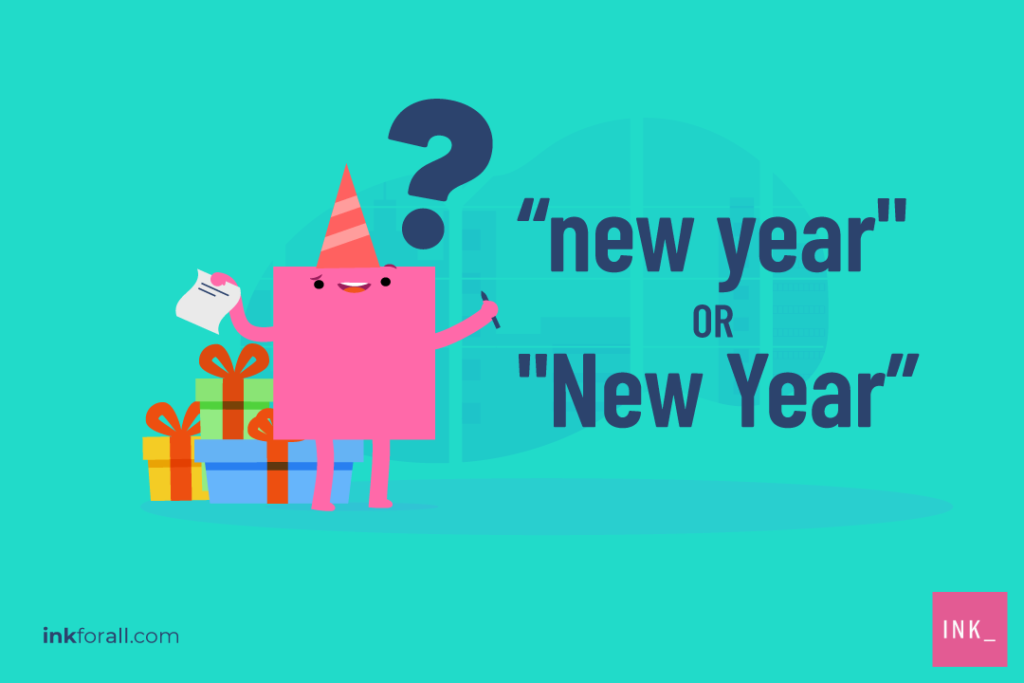

Do You Capitalize “Happy New Year” in a Sentence?
Capitalize “New Year” when you’re referring to the specific holiday. Do the same for New Year’s Eve and New Year’s Day. This is because these phrases are actually acting as proper nouns just like Valentine’s Day or Empire State Building (Enjoy your New Year holiday!). On the other hand, don’t capitalize new year when referring to the upcoming year in general, otherwise known as the 12 months starting on January 1st (I hope we’ll be able to travel more in the new year).
In the first example, the resolution is possessive (hence the apostrophe) and refers to the actual holiday. That means the capitalization is correct.
In the second example, the author is talking about eating more delicious coconut cream pie (because that’s the best flavor, obviously). He or she is going to eat that pie in the new year, not onNew Year’s Day or Eve. Therefore, there’s no need to capitalize it.
How Long can you say Happy New Year?
As a general guideline, say Happy New Year during the first week of January. Despite your best intentions, this greeting might be irritating or seem insincere if you use it for longer. For example, you might wish a friend a Happy Birthday at her party. But the next time you see her, you probably won’t say it again. The same is true for saying Happy New Year. However, let’s say it’s late January and you haven’t seen the person since the new year started or haven’t wished him well yet. This is a situation that would allow you to say Happy New Year for longer than one week.


Ringing in the New Year Right
In conclusion, nobody wants to ruin the new year just as it starts. So, make sure that you begin it by using the correct greeting phrase on your cards and emails. Start by triple-checking your apostrophes. Also, don’t forget proper capitalization.
However, if you’re still confused, you may refer to our expert-approved examples of New Year’s/New Years below:
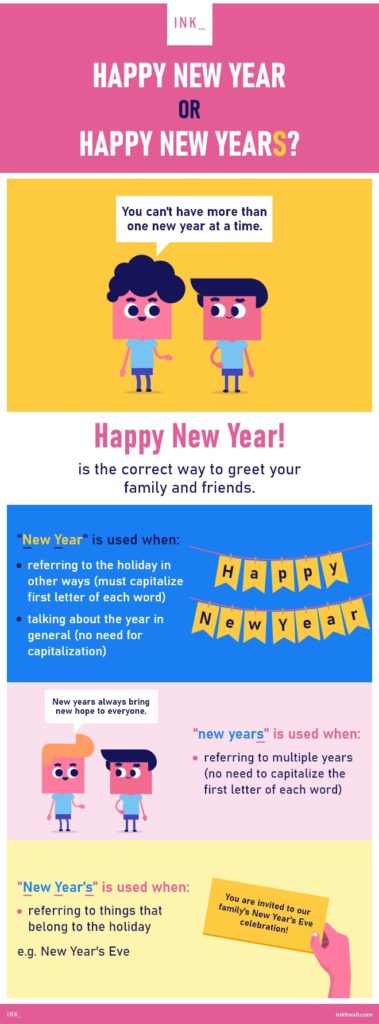

Happy New Year Quick Grammar Quiz
Happy New Year Question #1
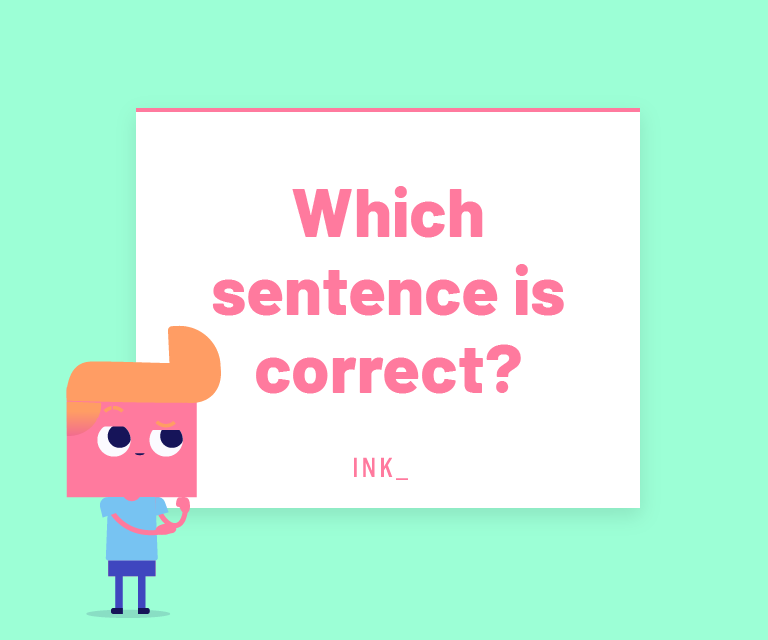

The answer is A. Year is singular here, so an ‘s’ is not necessary. Also, it doesn’t require an apostrophe because there’s no possession.
New Year Question #2
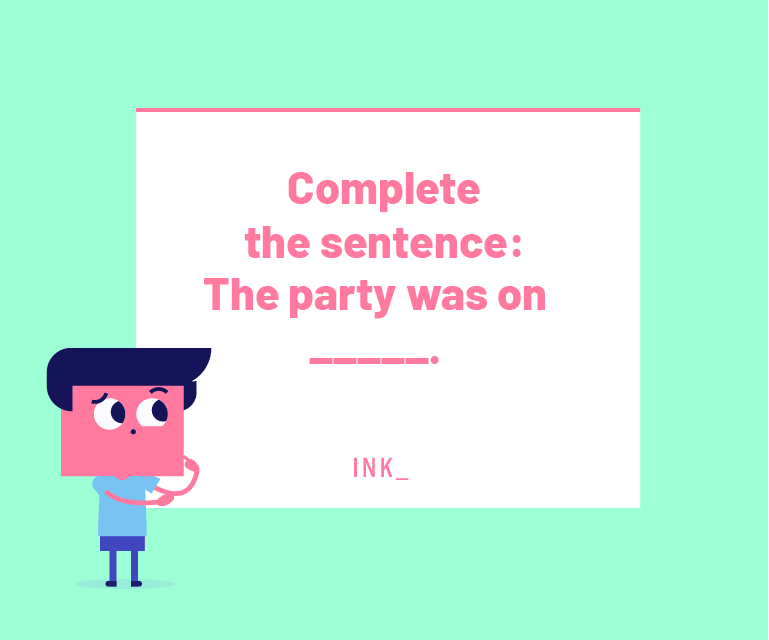

The answer is B. The word "eve" belongs to New Year. So, an apostrophe is required before the 's' to indicate a singular possessive.
Happy New Year Question #3


The answer is B. The sentence refers to a plural form of New Year; hence the additional s.
Question #4
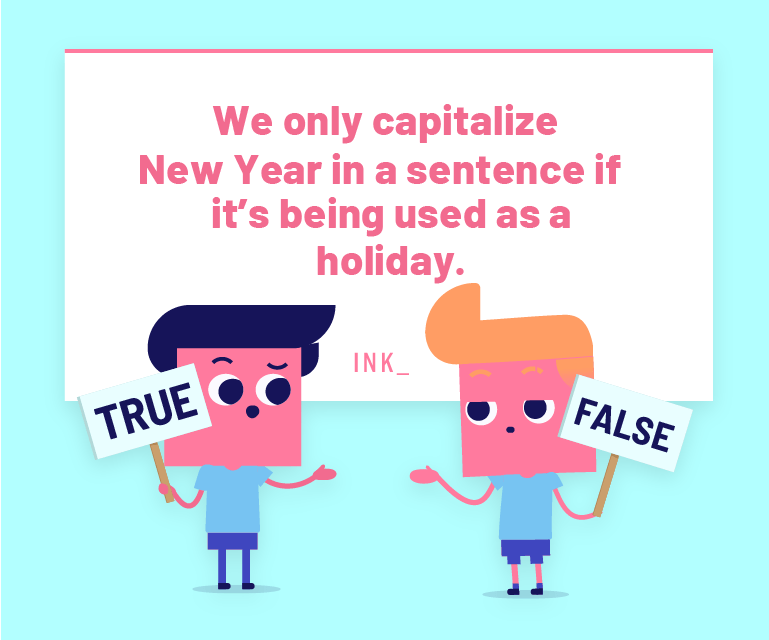

The answer is TRUE. Only capitalize New Year when you’re using it as a proper noun in a sentence.
